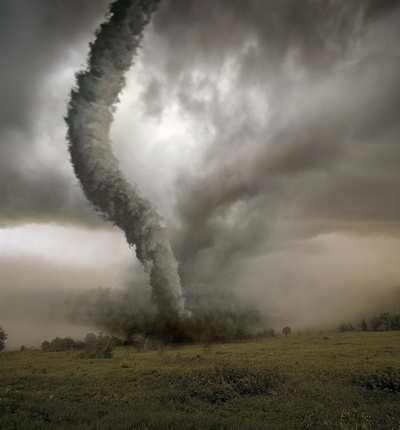About…
winds in the Bible
The winds are subject to God’s power.
“He causes the vapors [i.e., the clouds] to ascend from the ends of the earth;
Who makes lightnings for the rain,
Who brings forth the wind…” —Psalm 135:7 NASB
Whirlwinds/Tornados

God spoke directly to a man named Job out of a whirlwind (Job 38-41). He did this to purposely humbling him. God is pointing out how little Job or any person knows about God’s power and deeds.
God also sent judgment using whirlwinds
“The Lord is slow to anger and great in power,
And the Lord will by no means leave the guilty unpunished.
In whirlwind and storm is His way…” —Nahum 1:3 NASB
Figurative whirlwinds
The rush of invaders is spoken of figuratively as a whirlwind in Isaiah 21:1), and a commotion among the nations of the world is as of the striving of the 4 winds (Dan. 7:2).
Wind storms at sea
Jonah was punished and redirected by a divinely produced sea storm (Jonah 1:10-15).
“The Lord hurled a great wind on the sea and there was a great storm on the sea so that the ship was about to break up.
…the men became extremely frightened and they said to him [Jonah],
‘How could you do this?’
For the men knew that he was fleeing from the presence of the Lord, because he had told them. So they said to him,
‘What should we do to you that the sea may become calm for us?’
—for the sea was becoming increasingly stormy. He said to them,
‘Pick me up and throw me into the sea. Then the sea will become calm for you, for I know that on account of me this great storm has come upon you.’
However, the men rowed desperately to return to land but they could not, for the sea was becoming even stormier against them. Then they called on the Lord and said,
“We earnestly pray, O Lord, do not let us perish on account of this man’s life and do not put innocent blood on us; for You, O Lord, have done as You have pleased.”
So they picked up Jonah, threw him into the sea, and the sea stopped its raging.” —Jonah 1:4, 10-15 NASB
Wind direction
The wind is said to blow from the 4 quarters of heaven (east, west, north and south) (Jeremiah 49:36; Ezek. 37:9; Dan. 8:8; Zechariah 2:6).
The east wind is mentioned as parching Ezek. 17:10; 19:12), and is sometimes mentioned as simply denoting a strong wind (Job 27:21; Isaiah 27:8).
The east wind prevails in Israel from February to June, as the west wind (Luke 12:54) does from November to February.
The south wind was a hot wind (Job 37:17; Luke 12:55). It swept up from over the hot, dry desert of the Arabian peninsula.
Elijah and a whirlwind of fire
- Fire
- Elijah, the prophet
- Who is Elisha?
Chariot wheel like a whirlwind
On this account, the anger of Yahweh has burned against His people,
And He has stretched out His hand against them and struck them down.
And the mountains trembled, and their corpses lay like refuse in the middle of the streets.
For all this His anger is not turned back,
But His hand is still stretched out.
He will also lift up a standard to the distant nations,
…And behold, it will come with speed swiftly.
…Its arrows are sharp and all its bows are bent; The hoofs of its horses seem like flint and its chariot wheels like a whirlwind. —Isaiah 5:25-28 LSB excerpt
Holy Spirit and wind
See: How is wind like the Holy Spirit?
More Information
- What’s special about the Sea of Galilee? Answer
- East wind
- Why does wind make sounds?
- What are some weather extremes on Earth?
- Euroclydon—name of a wind
- Lightning and the Bible
- Thunder in the Bible
- Rain in the Bible
- Drought in the Bible
- Ice in the Bible
- Snow in the Bible
- Does God control the weather? Answer
- What is THE FEAR OF THE LORD? and why is it important? Answer
- What is the “ANGER of God”? Answer
- What is the “FURY” of God? Answer
- MIRACLES in the Bible
- judgments of God
- About God’s LOVE